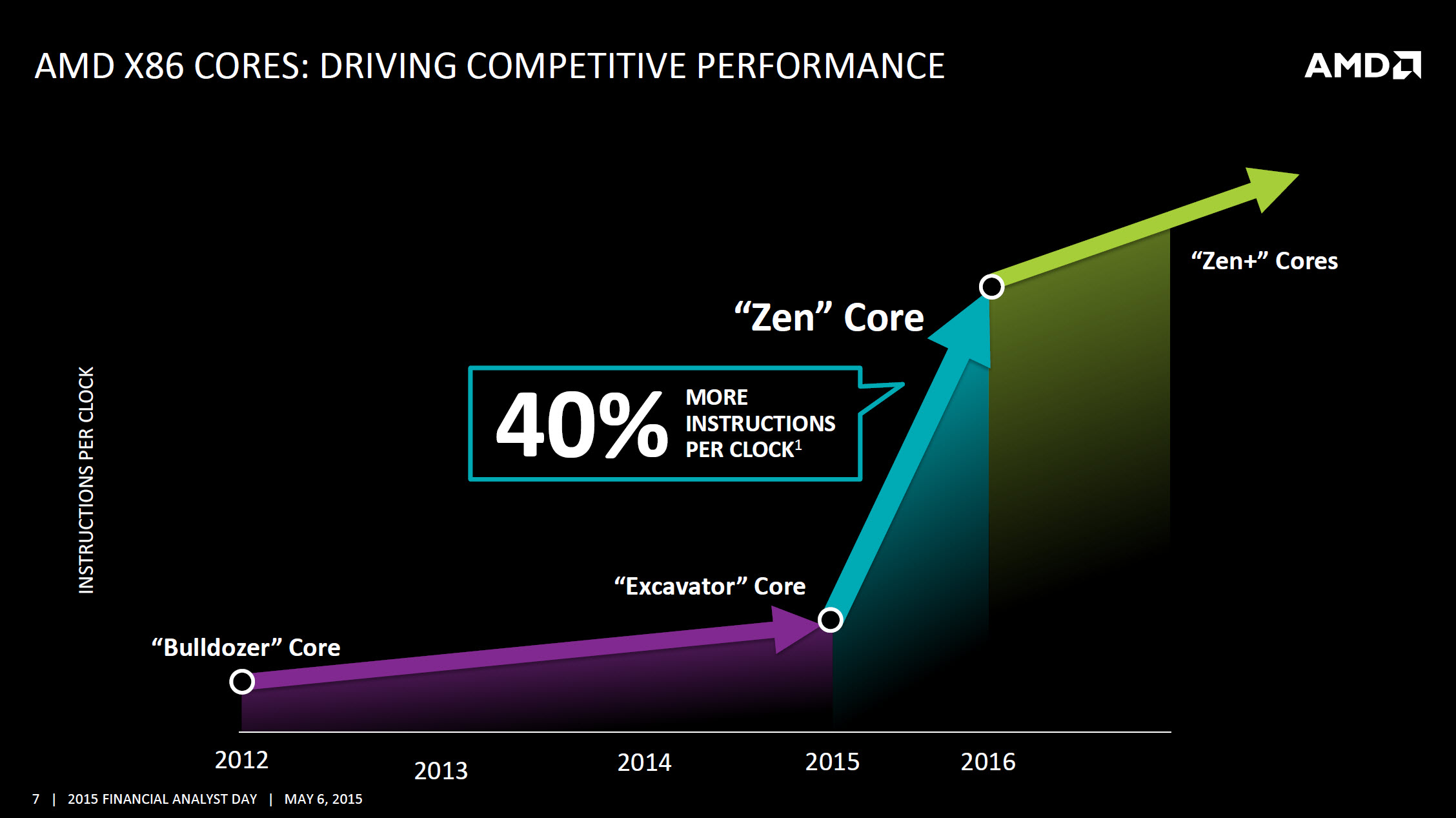MyHD4870x2Melted :
All we have to go on is speculation based on AMD's past history at this point. The only information we really have at the moment is that it should have IPC around that of Haswell, there will be a 8 core 16 thread, (lets ignore the fact that AMD usually has insane overclocking ability), so that leaves us with a chip matching the performance of a i7-5960X (theoretically).
According to data given by AMD Zen has IPC around Sandy Bridge. That "insane overclocking ability" was the result of Bulldozer family being a speed-demon microarchitecture (i.e. designed for higher clocks) plus using a special SOI process node derived from IBM foundry tech. This time, Zen is a brainiac microarchitecture (i.e. designed for higher IPC) and it will be made on a mobile oriented process optimized for low clocks: 14LPP. Overclocking abilities of Zen will be very bad.
MyHD4870x2Melted :
Now let's look at Intel. Haswell was a few generations back but in reality every new generation of chips has only had an increase of 5-10% and with no competition the prices have gone up as well. Do I believe that Intel can create a more powerful chip? Yes I do, but they have left themselves open. Even if Zen has the performance of a few generations back, it is still in performance range of the newer chips thanks to Intel.
The real question here is price. They already said the first chips out will be for enthusiasts. Dose that mean the 8 core Zen will match the price of the i7-5960X at $1000?! That's how much Intel thinks enthusiasts should pay! Is AMD going to under-cut them and go for $800? Still a hard pill to swallow but still a good deal. Or do you think AMD will go right for the throat and price 8 core 16 thread Zen against the 4 core 8 thread i7? It lacks the GPU but are you really going to use an i7 GPU anyway?
Every new generation from Intel only has 5--10% gain when using legacy x86 software. When using the new AVX256 instructions Haswell is up to 70% faster clock-for-clock than Ivy Bridge. The x86 ISA is not scalable and Intel did hit a performance wall, which had been predicted in academia decades ago.
Prices are not going up because of lack of competition, but because the PC market is in free fall and because classical rules of silicon scaling stopped to work. Newest nodes are very expensive to develop and get working because we are hitting the physical limits of silicon. This is the reason why both AMD and Nvidia did skip the 20nm node.
Pricing is a complete mystery. I guess that Zen 8-core will be priced similar to Broadwell 6-core, because Zen is a simpler smaller product made on a cheaper node.
MyHD4870x2Melted :
I think AMD really shines in the APU department. Every where I turn people are talking about Zen APU with the power of a RX-460. Sounds good, but I really hope for an APU with the power of an i5 and the graphics of an RX-480 even if it is a $300-$400 chip. It probably wouldn't make much sense business wise but it would allow the small-form-factor builds to really take off and this isn't a place Intel can really compete given their iGPU sucks and a gaming PC can only be so small when you are forced to use a dGPU.
Intel has the fastest APUs now and I don't think this is going to change soon. The RX460 has 14CU and GDDR5. Zen APUs are rumored to have DDR4 and up to 11CU.




 That will put an end to all the speculation, and instead go back to the 'AMD is doomed', 'no AMD will DOMINATE Intel with Zen+' discussions
That will put an end to all the speculation, and instead go back to the 'AMD is doomed', 'no AMD will DOMINATE Intel with Zen+' discussions 
